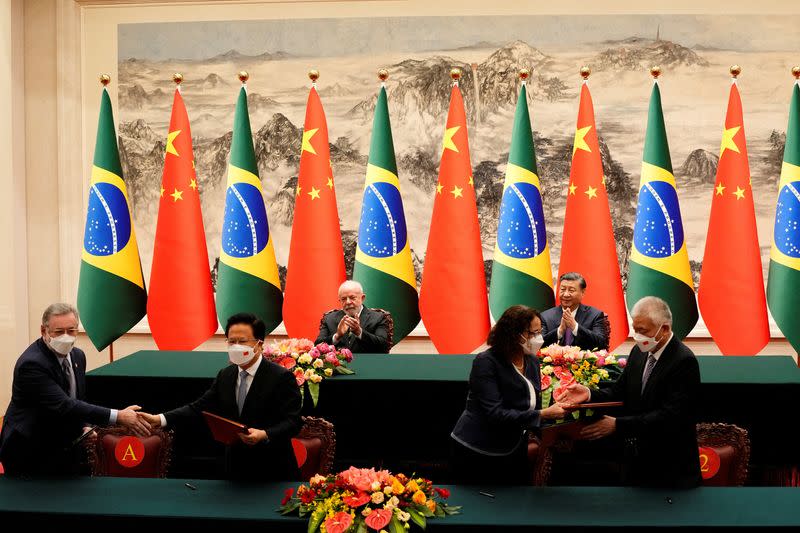Brazilian President Luiz Inacio Lula da Silva has defended his country’s commercial dealings with China on his recent trip to Beijing.
Fifteen new agreements were signed during the Brazilian leader’s three-day trip to China, which also saw Lula attend the inauguration ceremony of former Brazilian president Dilma Rousseff as head of the New Development Bank of the BRICS, the trading bloc made up of Brazil, China, Russia, India and South Africa.
Lula signalled that his country’s pursuit of Chinese communication and semiconductor technology took precedence over security concerns by Western nations such as the United States.
“No one will prohibit Brazil from improving its relationship with China,” the leftist Brazilian president said on his state visit to Beijing, during which he visited a research centre of telecommunications giant Huawei Technologies.
Lula said in public remarks that his Huawei visit was “a demonstration that we want to tell the world we don’t have prejudices in our relations with the Chinese.”
ALSO SEE:
China’s CATL Eyes Condensed Matter Battery for Planes, EVs
Satellite to monitor the Amazon
China and Brazil also agreed to set up a working group to pursue cooperation on semiconductors as the South American nation strengthens ties with Beijing in areas of sensitive technology.
Lula met with Chinese leader Xi Jinping and the 15 agreements signed by the two countries included a deal for a sixth satellite used to monitor the Amazon, and the development of technology for cybersecurity and fifth-generation (5G) mobile communications.
Information technology has been a sticking point for China’s relations with the United States and European countries that have in some cases banned Chinese products for security reasons.
Brazil, however, is interested in attracting Chinese investment in these areas, despite recent US pressure discouraging the use of 5G mobile equipment from Huawei.
In an interview with Reuters, Lula’s foreign policy advisor Celso Amorim said Brazil will not veto the installation of a Chinese semiconductor factory in Brazil, and is interested in developing the technology with China.
Among their accords, China and Brazil agreed to “explore mechanisms to promote bilateral cooperation in scientific and technological research and industrial innovation.”
That would involve joint research and development activities between public, private and academic institutions, and the exchange of scientists and scientific papers.
- Reuters with additional editing by Jim Pollard
ALSO SEE:
China’s Huawei Claims ‘Crisis is Over’ After Revenue Rise
China Settles First LNG Trade in Yuan in Latest Hit to Dollar
Huawei Beats US Sanctions With Chip Tool Breakthrough
























